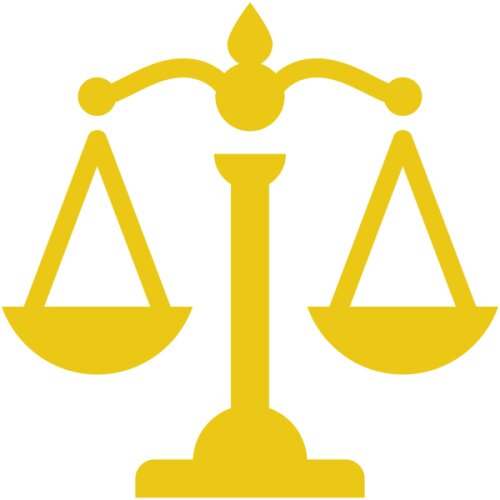Best Trusts Lawyers in Newcastle
Share your needs with us, get contacted by law firms.
Free. Takes 2 min.
List of the best lawyers in Newcastle, South Africa
About Trusts Law in Newcastle, South Africa
Trusts in Newcastle, South Africa, function as legal arrangements where one party, known as the trustee, holds and manages property or assets for the benefit of another party, identified as the beneficiary. This model of asset protection serves various purposes, such as safeguarding family wealth, minimizing tax liabilities, providing for minors or individuals with disabilities, and managing charitable donations. Trusts are governed by both common and statutory law, with the Trust Property Control Act being the primary legislation.
Why You May Need a Lawyer
There are several reasons why someone might require legal assistance when dealing with trusts in Newcastle:
- Establishing a Trust: Setting up a trust involves complex legal procedures and documentation where professional guidance ensures compliance and clarity.
- Managing a Trust: Trustees managing substantial assets or complex portfolios may need legal advice to adhere to their fiduciary duties and to navigate tax implications.
- Disputes: Legal disputes may arise concerning the interpretation of trust deeds, beneficiaries' rights, or trustee actions, necessitating legal intervention.
- Modifying or Dissolving a Trust: Changes in circumstances may require modifications to a trust, or a trust might need to be dissolved legally.
- Tax Advice: Trusts are subject to specific tax treatments, and expert advice can optimize tax liabilities effectively.
Local Laws Overview
Understanding the local laws pertinent to trusts is crucial for legal compliance and effective trust management in Newcastle. Here are some key aspects:
- The Trust Property Control Act is the main legal framework detailing the duties and responsibilities of trustees, and how trusts need to be managed.
- Fiduciary Duty requires trustees to act in the best interests of the beneficiaries, managing the trust’s assets prudently and avoiding conflicts of interest.
- Registration of Trusts: While not mandatory in all cases, it can provide clarity and is recommended for legal certainty.
- Tax Obligations: Trusts are subject to specific tax regulations, including income tax and possible estate duty implications.
- Protection of Beneficiaries: Local laws ensure the rights of beneficiaries are upheld, and they have the means to seek recourse if a trustee fails in their duties.
Frequently Asked Questions
What is a trust, and how does it work?
A trust is a legal arrangement where a trustee holds property for the benefit of beneficiaries. The trustee manages the assets according to the rules set out in the trust deed.
How do I set up a trust in Newcastle?
To set up a trust, enlist a lawyer who will draft a trust deed, appoint trustees, and ensure the legal requirements are met to establish a valid trust.
Who can be a trustee?
A trustee can be an individual or a corporate body with the legal capacity to act on behalf of beneficiaries. Trustees must adhere to their fiduciary duties.
Can trust assets be used for personal purposes by trustees?
No, trust assets must be used strictly for the benefit of beneficiaries, following the trust deed's directives.
Are trusts registered with a governmental body in South Africa?
In South Africa, trust registration is not mandatory, but it is encouraged to promote legal clarity and protection.
What tax implications are there for trusts?
South African trusts may be subject to income tax, capital gains tax, and potentially estate duties, requiring strategic planning to mitigate these taxes.
How can I change or dissolve a trust?
This depends on the terms of the trust deed and the agreement of the parties involved. Legal advice is essential to ensure all procedures are followed lawfully.
What happens if a trustee fails in their responsibilities?
If a trustee breaches their duties or acts against the beneficiaries' interests, legal action can be taken to remove the trustee or seek damages.
Can a trust own a business?
Yes, a trust can hold business assets and operate businesses, subject to compliance with the governing laws and the terms of the trust deed.
What are the benefits of setting up a trust?
Trusts can provide asset protection, estate planning advantages, taxation benefits, and controlled distribution of wealth according to specific wishes and circumstances.
Additional Resources
Below are some resources that can provide additional information and assistance regarding trusts in Newcastle:
- The Master of the High Court: Oversees the administration of trusts and provides regulatory oversight.
- South African Revenue Service (SARS): Information and assistance on tax obligations for trusts.
- Legal Aid South Africa: Offers legal assistance and guidance on trusts and related matters to those who qualify.
- Local Law Practices: Engaging with local law firms that specialize in estate planning and trust law.
Next Steps
If you need legal assistance concerning trusts, consider the following steps:
- Evaluate Your Needs: Determine what type of legal assistance you require, whether it's setting up a trust, dispute resolution, or tax advice.
- Seek Professional Advice: Contact a legal professional or law firm in Newcastle with expertise in trust law to discuss your situation.
- Gather Necessary Documentation: Prepare any relevant documentation you might need, such as financial statements or identification documents for beneficiaries.
- Follow Through: Work closely with your legal advisor to implement any recommendations or legal strategies.
Lawzana helps you find the best lawyers and law firms in Newcastle through a curated and pre-screened list of qualified legal professionals. Our platform offers rankings and detailed profiles of attorneys and law firms, allowing you to compare based on practice areas, including Trusts, experience, and client feedback.
Each profile includes a description of the firm's areas of practice, client reviews, team members and partners, year of establishment, spoken languages, office locations, contact information, social media presence, and any published articles or resources. Most firms on our platform speak English and are experienced in both local and international legal matters.
Get a quote from top-rated law firms in Newcastle, South Africa — quickly, securely, and without unnecessary hassle.
Disclaimer:
The information provided on this page is for general informational purposes only and does not constitute legal advice. While we strive to ensure the accuracy and relevance of the content, legal information may change over time, and interpretations of the law can vary. You should always consult with a qualified legal professional for advice specific to your situation.
We disclaim all liability for actions taken or not taken based on the content of this page. If you believe any information is incorrect or outdated, please contact us, and we will review and update it where appropriate.









